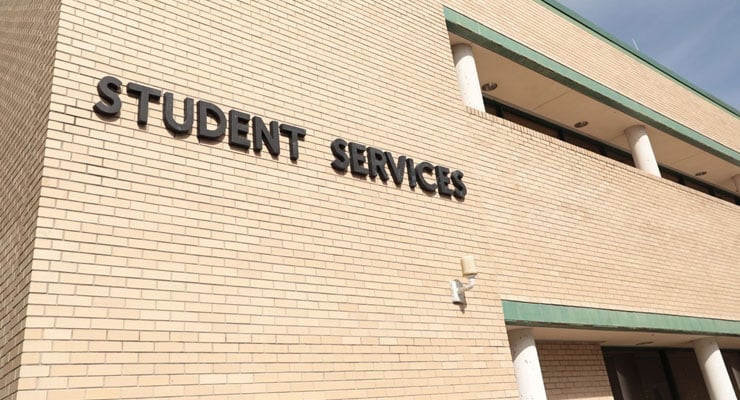
The first time you are on a college campus will be an eye-opening realization. A realization that all the hard work put forth in high school has paid off. Feeling the satisfaction of earning a higher level of education is great. Remember, you’re new to the college scene, so there are probably a few things you will have questions about. Here’s what to expect when you start college to help you get started.

Where to Start
Everything is new and exciting at the beginning. New school, new people, new living arrangements. You will quickly have to learn where your classes are. You will have to figure out where to park and where to eat on campus. You will have to create a whole new lifestyle and daily routine.
It will feel overwhelming at times because it feels like the whole world gets thrown in your face all at once. It will be important to slow down when life starts moving at the speed of light. It will be incredibly hectic the first week of classes, but it does get easier after.
Before you feel overwhelmed, plan time for yourself to get used to your new surroundings and reach out for help at your college. Colleges have teams of people ready to help you transition from high school to college life. A good place to start is with your resident advisor at your residence hall or with your college’s Office of Student Affairs.
Advising
Expect that you won’t know everything, so you’ll need to be sure you get the guidance you need. Schedule to meet with your advisors as much as you need to and come prepared with a list of questions. It is their job to help you along your path in college, so I can’t stress enough how helpful it is. It may seem tedious but that will bring you along faster than just about anything else.
Financial Aid
Financial aid is incredibly important and certainly a headache if you try to figure it out for yourself. There are financial aid advisors for that, too, so take advantage of their knowledge and expertise.
Many students struggle with understanding the total cost of the semester combined with receiving scholarship or grant money and how that whole process works. When I started college, it was a nightmare, but asking for help cleared up the confusion I had. The registrar and financial aid office are great resources that I would encourage every student to use.

In Class
One of the best pieces of advice I can give is about the syllabus. Expect to have questions regarding assignments for your classes. Whether a teacher gives you a physical copy of the syllabus on the first day of class or you print it out online, keep that with you all semester for guidance. It has helped me so much.
Everything the instructor expects of you is written out in a single document. It’s great because throughout the semester, you can always look and see how much each assignment or group of assignments is weighted and when assignments are due. It spells out exactly how your final grade will be determined and that is something that I’m always mindful of.
You may have a class where the only grades all semester long are three tests and then a final exam. In others, you may have weekly assignments the whole semester and no final exam at the end. In my experience, I’ve had both and keeping the syllabus around will help no matter what the situation is.
I remember taking economics and receiving a low test grade that I thought would eliminate my chances of getting an A in the class. When I looked at the syllabus, I totally forgot that our professor said she would drop the lowest test grade. It’s something that we went over on the first day of class, but it had been nearly ten weeks since then. Keeping a syllabus on me came in handy and answered some of my questions.
Study
One thing that I know is different from high school is free time. Most of the time, classes are lectures, labs, or discussions. All of the work is usually done outside of the classroom. That’s why it is so crucial that you don’t let free time turn into wasted time. Expect to spend more time studying outside of class.
In high school, you are at school for close to 40 hours a week. In college, four classes that meet twice a week for 75 minutes counts as full-time. That means you are only in class for 10 hours a week. Don’t be fooled into thinking that classes are so easy that all of a sudden you have all the free time in the world.
You will find that work quickly piles up each week and that you need to set aside a significant chunk of time for school. I don’t think you can give it 30 minutes a day and expect to do well. It takes multiple hours every single day of the week.
Schedules
This is the first time where you are responsible for just about your whole life. This is where you can start developing healthy and productive habits for work and school. Expect to make your own schedule and stick to it.
It may be tempting to get distracted in college, but time management is the key to the whole puzzle. Be consistent and disciplined, and you will be just fine. You will find time to socialize and do what you want, don’t worry.
College has been the most amazing time of my life, but it also takes a level of discipline to juggle school in addition to all the other things that make the experience great. I try to enjoy every single day on campus and not take it for granted. The people I’ve met and the friendships I’ve made will last a lifetime and that’s worth the cost of tuition to me.
The USF Office of Admissions is always ready with advice and answers. Contact us online, or reach us by phone at 813-974-3350.


